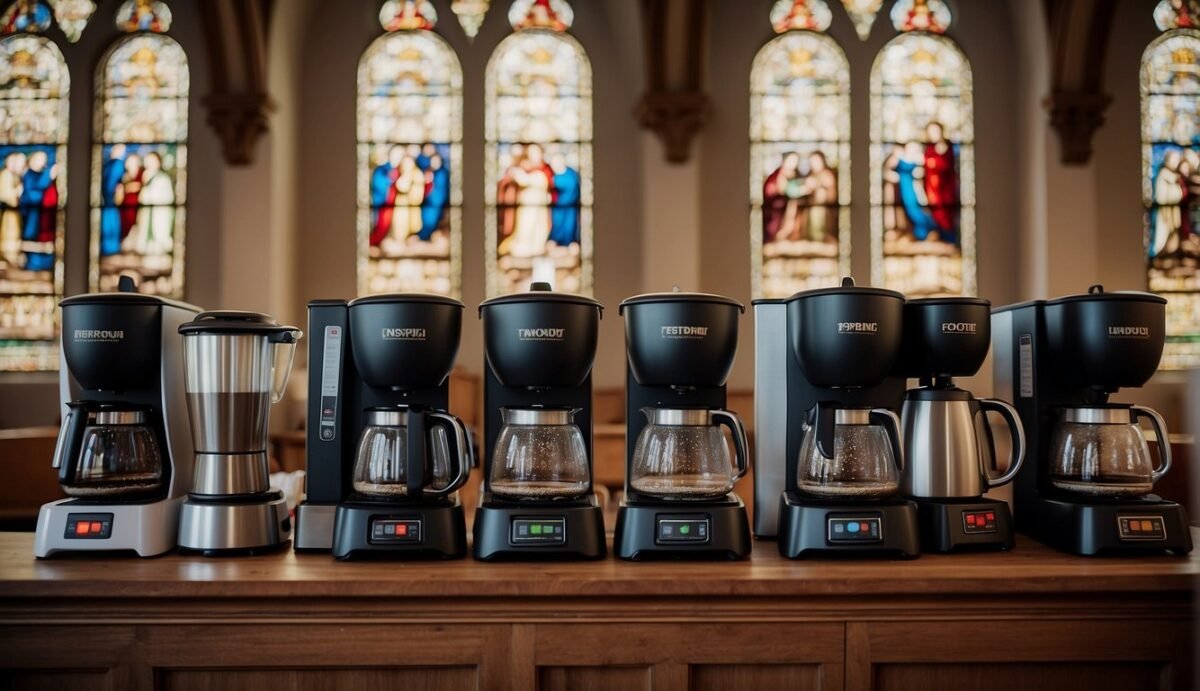Selecting the right coffee maker for a church setting involves balancing several factors to ensure that the coffee service contributes positively to the sense of community and hospitality. Churches need machines that can handle a high volume of traffic, deliver consistent taste, and are easy to maintain, all while considering budget constraints. The ideal coffee maker for a church must be efficient enough to serve large groups quickly, have easy-to-use features, and require minimal cleanup.
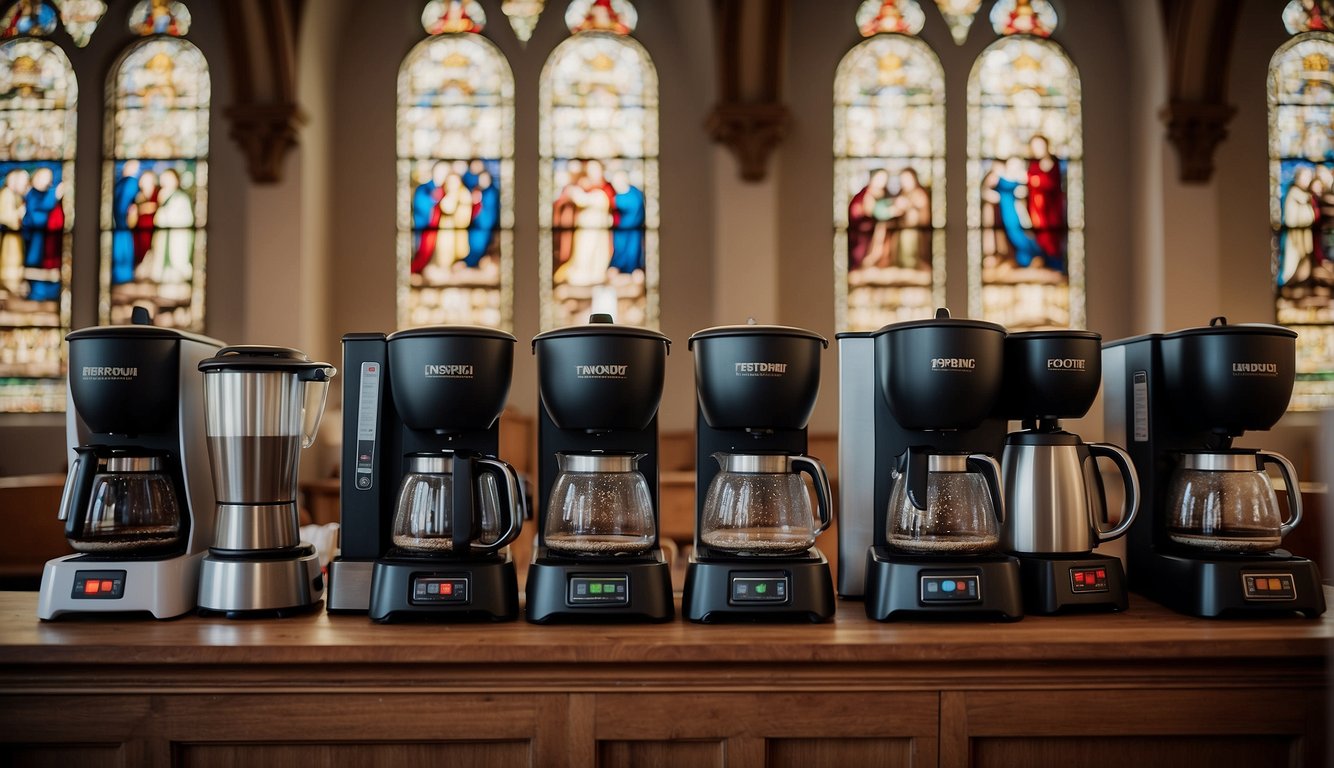
While cost is a significant factor, investing in a durable coffee maker may reduce long-term expenses associated with maintenance and replacement. Space limitations and setup infrastructure are also critical considerations; a church might require a compact machine that fits neatly into a designated area or one that aligns with the existing layout of the kitchen or serving space. Additionally, churches must think about the necessary accessories and supplies, such as filters, coffee grinds, and carafes, to ensure they are prepared to serve their congregation.
Key Takeaways
- A coffee maker for churches should offer quick service and easy maintenance.
- Durability and cost-effectiveness are key factors in selecting the right machine.
- Space constraints and additional supplies must be considered for proper setup.
Essential Features for Church Coffee Makers
Choosing the right coffee maker for a church involves considering features that meet the demands of a larger congregation. Safety, budget, and brew quality are important.
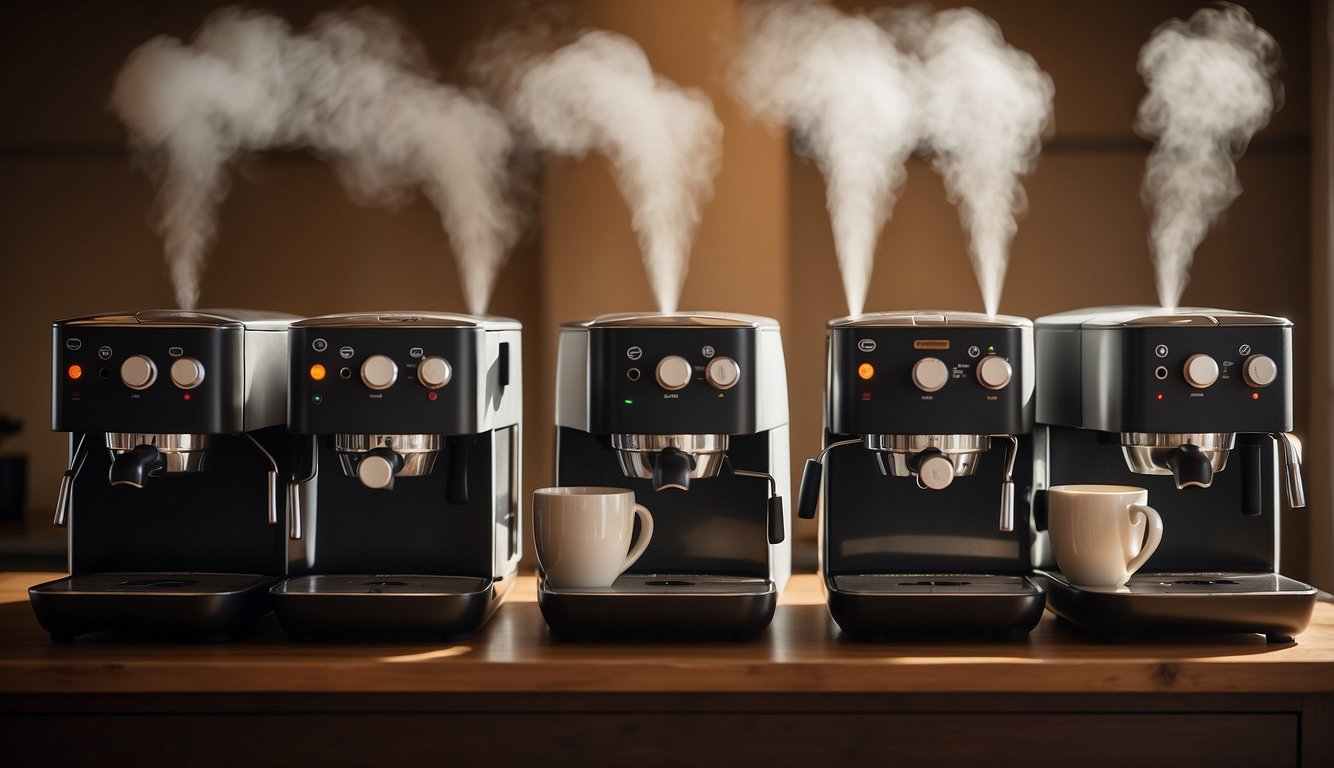
Capacity and Brewing Volume
Church coffee makers should have a large capacity to serve multiple people at once. A high brewing volume is key during short but busy serving hours.
Durability and Longevity
A coffee maker for a church must be durable to withstand frequent use. Materials should be high-quality to ensure longevity.
Ease of Use and Maintenance
They should be easy to operate by volunteers and staff. They must also offer simple maintenance procedures to keep them in good condition.
Top Recommended Coffee Makers for Churches
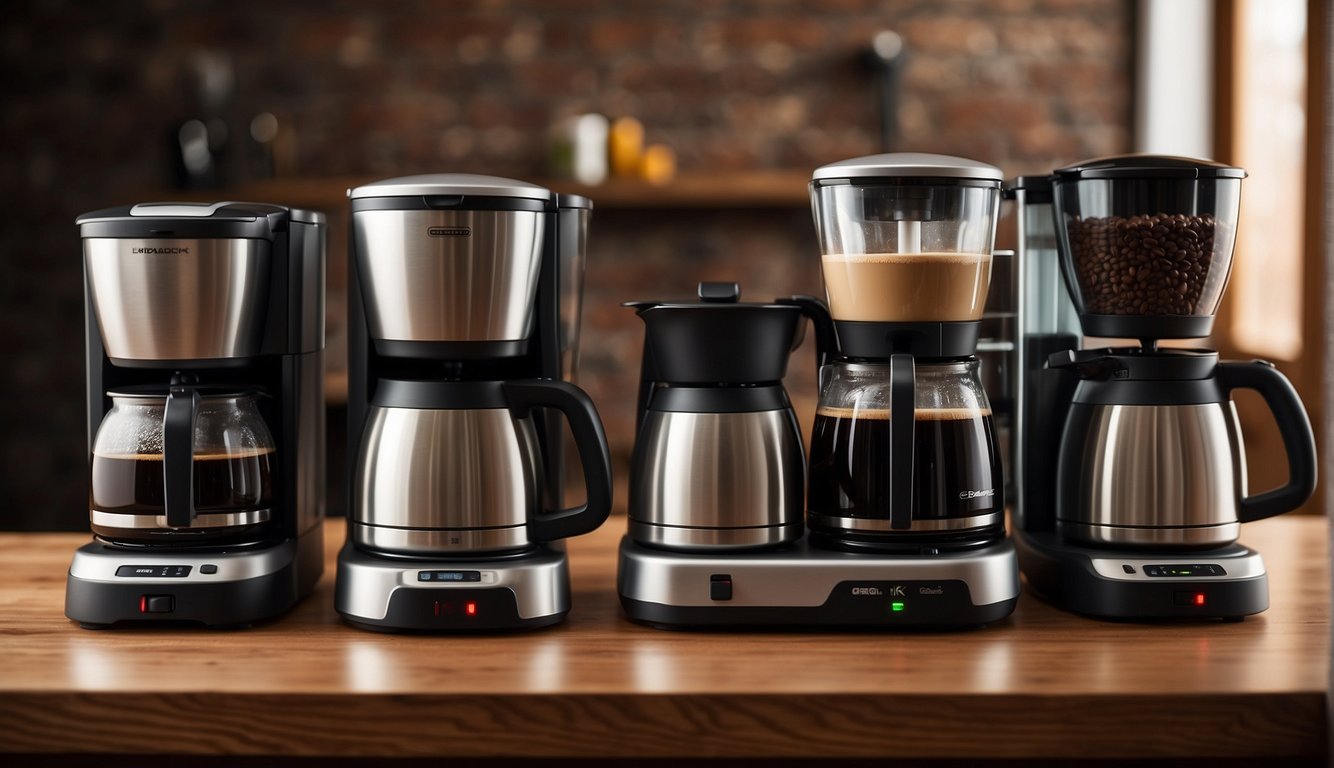
When selecting a coffee maker for a church setting, one must consider capacity, speed, and the variety of coffee preferences of the congregation. Coffee makers that meet these needs come in several forms.
Large Urn Coffee Makers
For events with high attendance, large urn coffee makers are ideal. They can brew large quantities of coffee quickly, ensuring a steady flow for a crowd. A notable option is the Hamilton Beach 45 Cup Coffee Urn, which is designed for easy filling, quick brewing, and simple serving.
Commercial Espresso Machines
Churches that aim to offer specialty coffees may opt for commercial espresso machines. These units cater to diverse preferences, from espressos to lattes. The Nuova Simonelli Aurelia II is a reliable machine that can handle a high volume of orders with consistent quality.
Drip Coffee Brewers with Multiple Warmers
Drip coffee brewers with multiple warmers keep various coffee types ready to serve. They are suited for medium-sized groups. The BUNN VPR-2GD 12-Cup Pourover Commercial Coffee Brewer has two warmers, which keeps coffee hot and allows for brewing a new batch while serving the first.
Cost Considerations
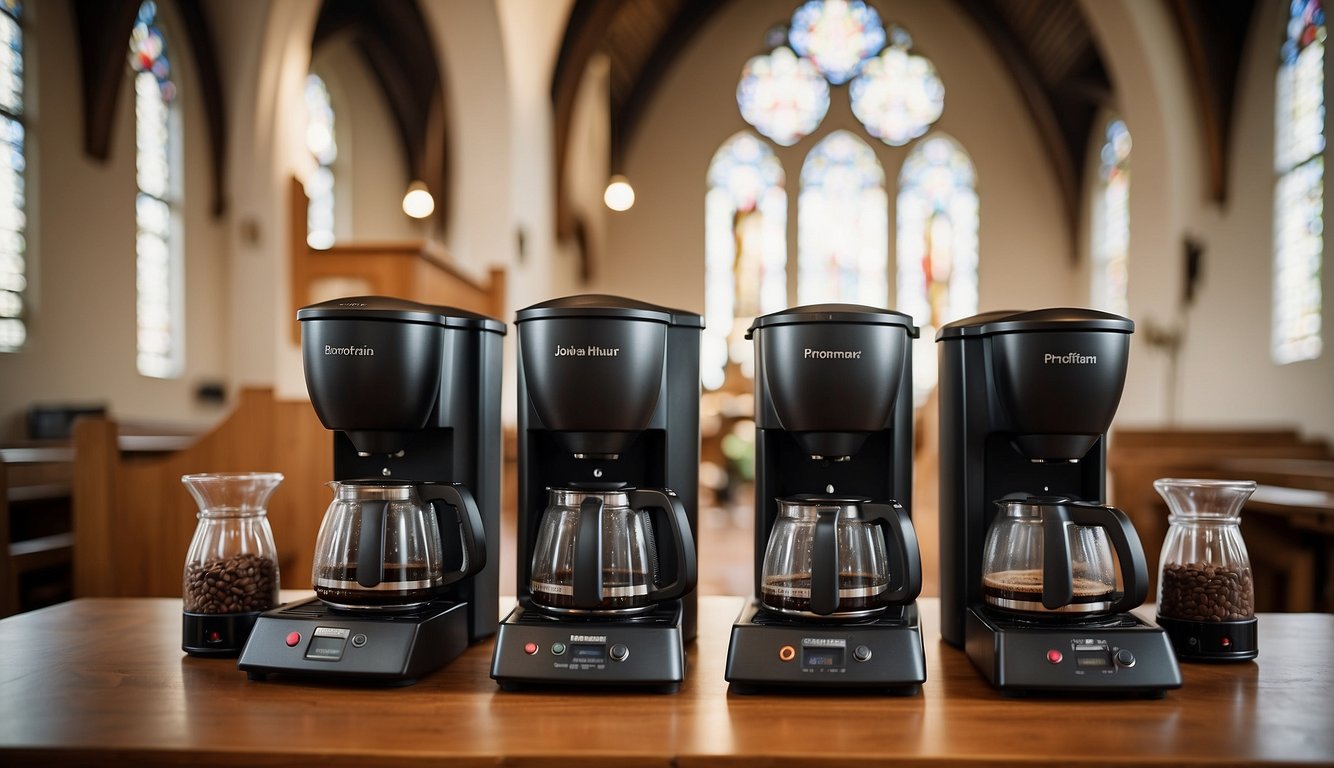
When it comes to equipping a church with a coffee maker, the cost is a major factor. Careful planning helps ensure that the investment aligns with the church’s budget and coffee needs.
Initial Investment
The initial cost of coffee makers can vary greatly. Commercial-grade machines necessary for a church setting range from a few hundred dollars to several thousand. Features such as larger brewing capacities and advanced technology drive up the price. It is crucial to balance the need for quality with the available budget.
Operating Cost and Energy Efficiency
After the purchase, a coffee maker’s energy use impacts the overall cost. Models with energy-saving features may have higher upfront costs but can lead to savings over time. Additionally, churches should consider the cost of supplies and maintenance, such as filters and coffee beans, which can add to the operating expenses.
Warranty and Service Agreements
A manufacturer’s warranty can protect against unexpected repair costs. It is wise to check the length and coverage details of the warranty. Some manufacturers offer extended warranties or service agreements for an additional fee. These can be beneficial for reducing long-term maintenance costs and ensuring the machine remains in good working order.
Space and Setup Requirements
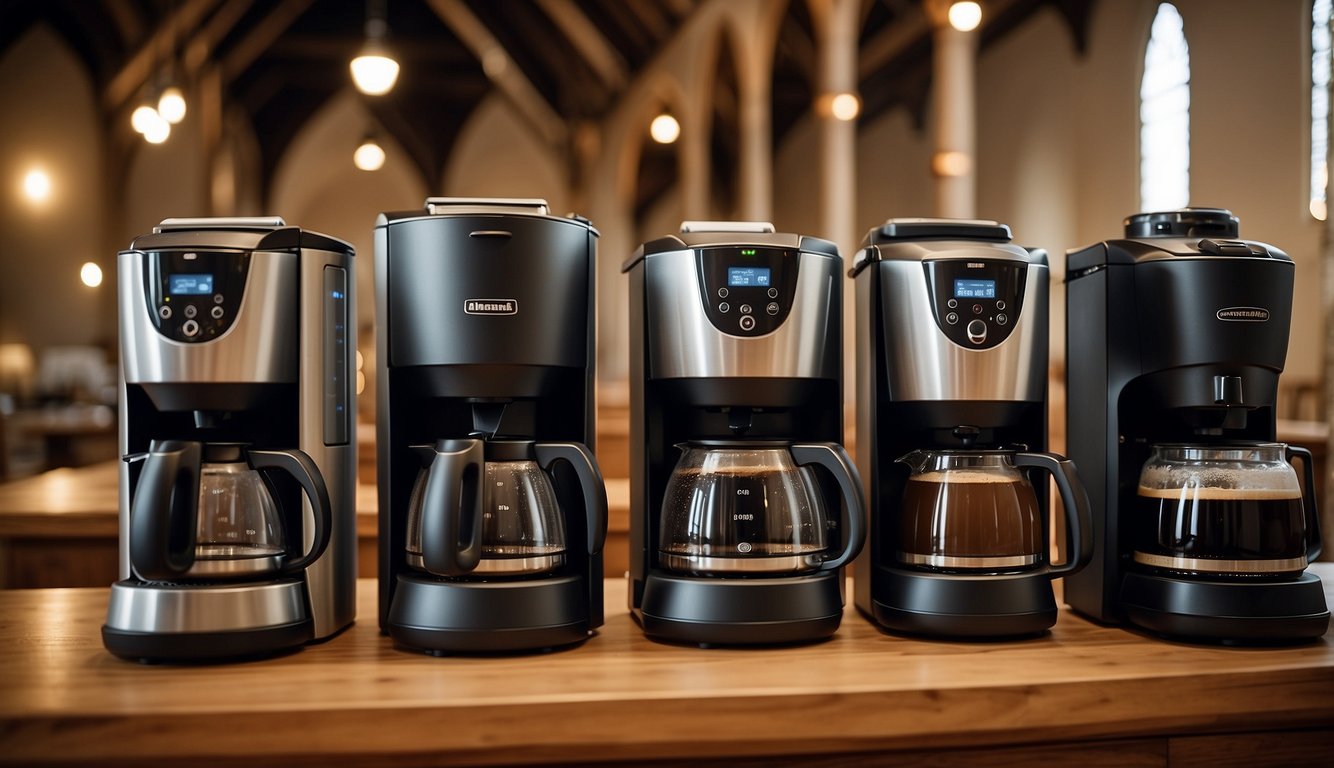
Choosing the right coffee makers for a church involves understanding the specific space and utility requirements. These ensure the coffee service runs smoothly and efficiently.
Counter Space and Storage
Church coffee stations need sufficient counter space for equipment. Measure the area where the coffee machine will be placed. One must account for the size of the machine, and any extra accessories. This includes grinders, frothing wands, or water reservoirs. Storage space for coffee beans, cups, and other supplies is also important.
Electrical Needs
Coffee machines for churches must have access to adequate electrical outlets. It is important to check the machine’s voltage requirements against the available supply. Some machines require a standard 110-120V outlet, while others need higher voltage lines.
Plumbing and Water Supply
A reliable water supply is crucial for coffee machines. For machines directly connected to plumbing, one must ensure compatibility with existing water lines. Some machines have built-in water reservoirs that need manual refilling, suitable for areas without direct water connections.
Additional Accessories and Supplies
To ensure a smooth coffee service, churches should consider the importance of additional accessories and supplies. These items are crucial for a complete coffee-making setup.
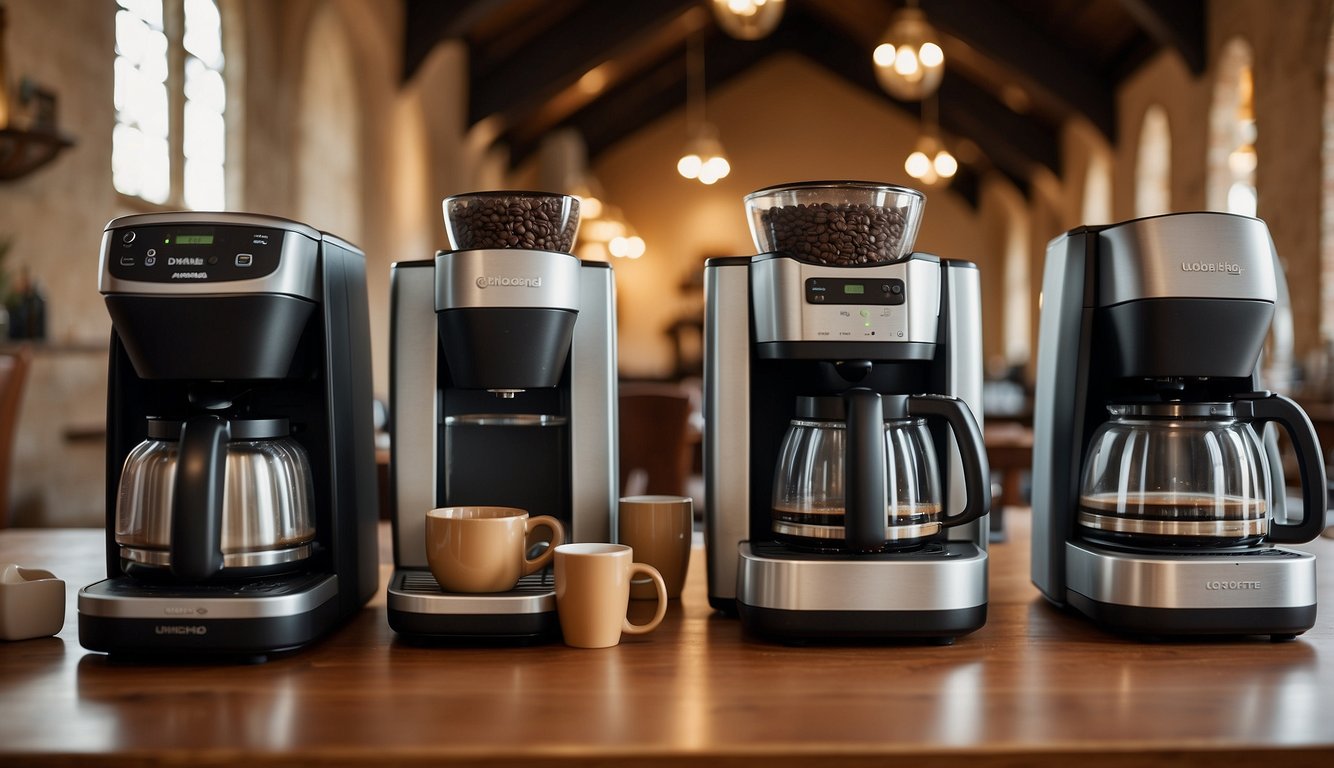
Coffee Grinders
Freshly ground coffee beans make a noticeable difference in flavor and quality. A high-quality grinder is essential for churches. It ensures consistent particle size, which is significant for the taste of the coffee.
Filters and Cleaning Supplies
No coffee station is complete without the necessary filters and cleaning supplies. Regular maintenance keeps machines running smoothly. Proper filters contribute to a cleaner, more refined coffee taste.
Serving Stations and Airpots
For ease of access and to maintain coffee temperature, serving stations and airpots are valuable. They allow large groups to serve themselves safely and efficiently.
Frequently Asked Questions
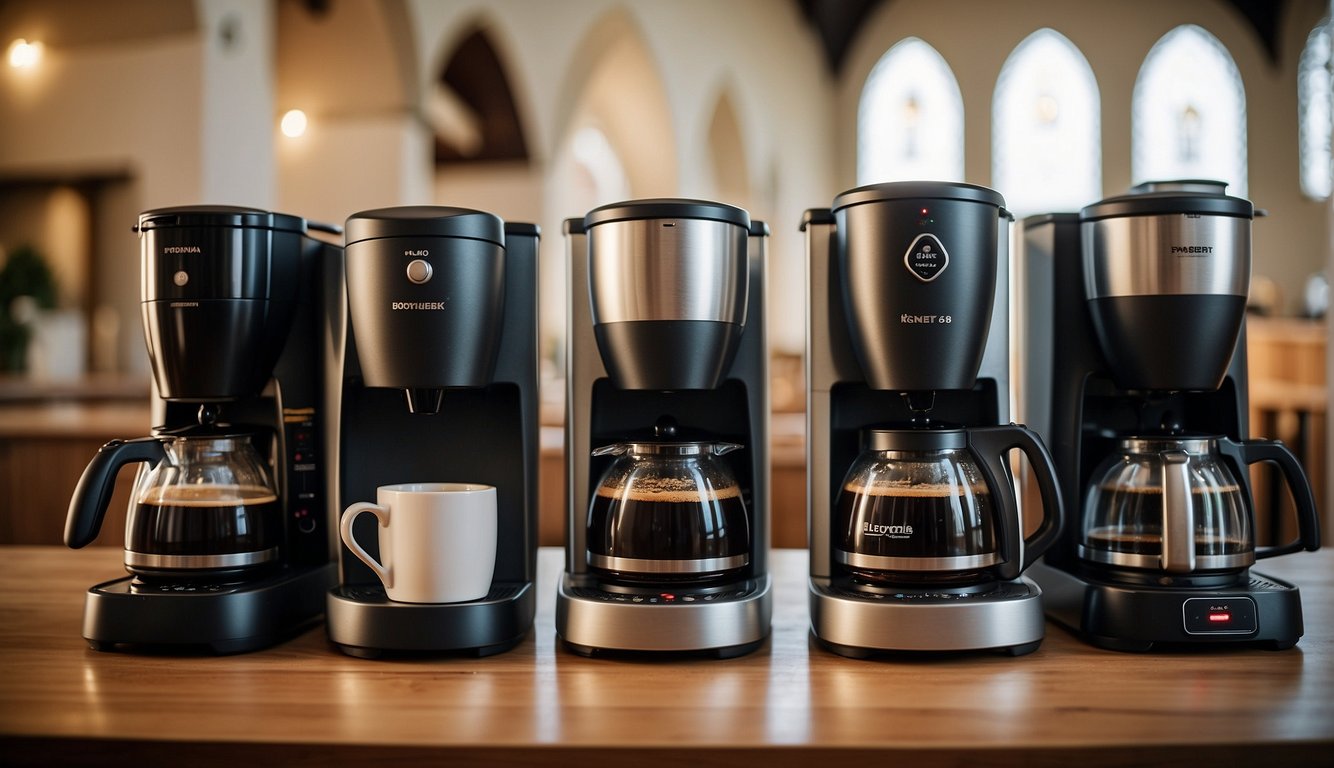
Selecting the right coffee maker for a church environment is crucial. It needs to meet specific requirements including serving capacity, durability, and ease of use.
What are the key features to look for in a coffee maker suitable for church settings?
Key features include large capacity, ease of cleaning, durability, and quick brewing times. It should also have simple controls so that any volunteer can operate it.
Which brands offer the best coffee makers for high-volume use, like in a church environment?
Brands like Hamilton Beach and Bunn are known for their high-volume coffee makers. These brands create machines that can handle the frequent use a church requires.
How does a coffee urn differ from a regular coffee maker, and is it better for church use?
A coffee urn has a larger capacity and can serve dozens of people at once. This makes it more suitable for church use, especially during big gatherings.
What are some portable coffee bar solutions for churches that frequently host events?
Portable coffee bars allow churches to set up a serving area anywhere. They come with wheels for easy transportation. It’s essential for churches that host events in different locations.
Can you recommend a durable coffee maker that can serve a large congregation?
The Eversys Shotmaster is recommended for its durability. It can serve a large number of people and withstand frequent usage.
How can a church choose a coffee maker that balances quality with cost efficiency?
Churches should compare different models and check for features like programmable settings and energy-saving modes. Reviews and buyer’s guides can help in deciding on a cost-efficient model that doesn’t compromise on quality.
